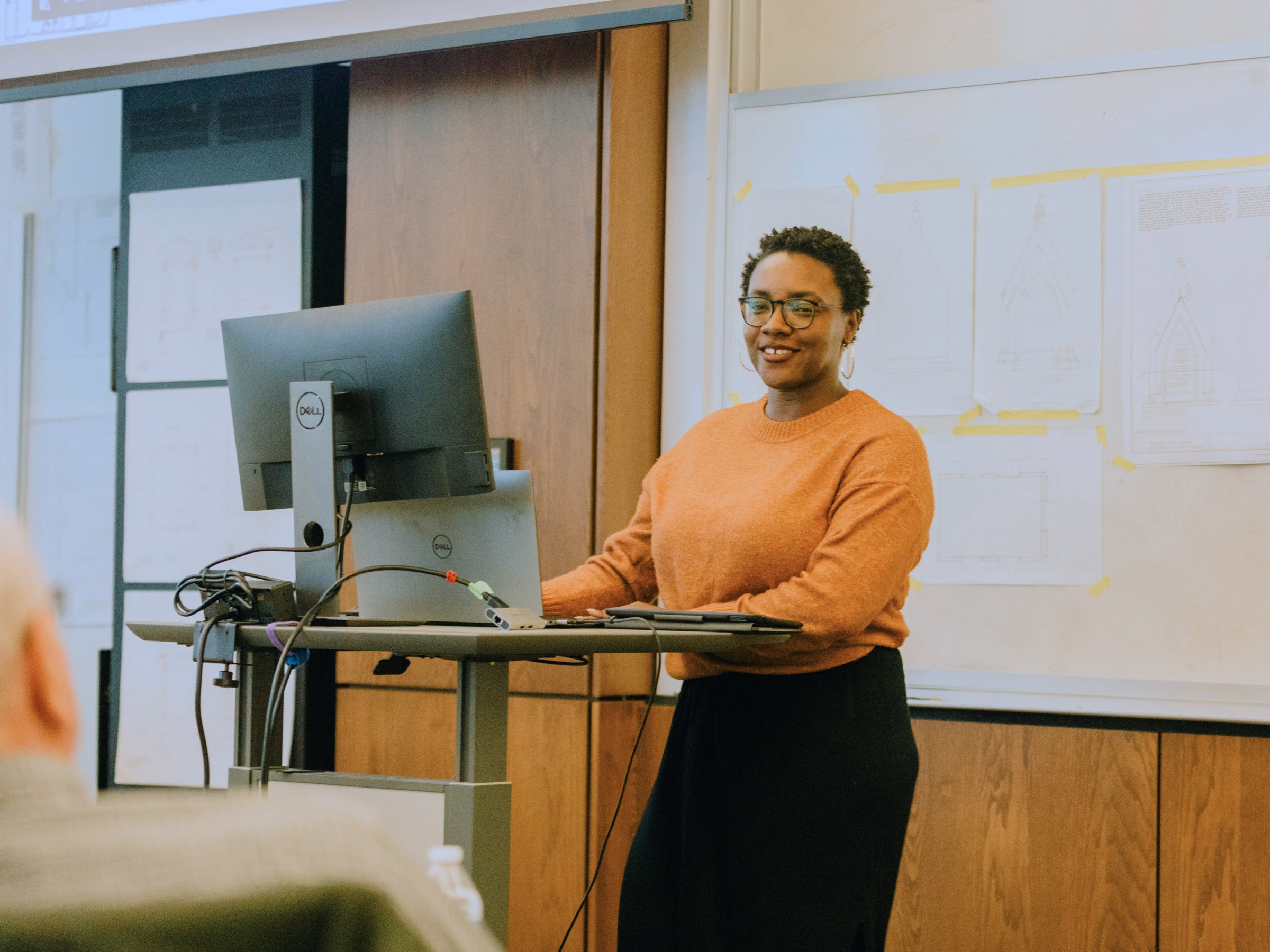Tulane 34 and EDI Award

may 22, 2024
By Laura Mcknight, for TuSA
Growing up in traffic-heavy Los Angeles, Tahlor Cleveland, M.Arch *24, spent a lot of time riding around the city, often gazing at the changing landscapes and varied buildings. Cleveland’s interest in her surroundings sparked a desire to study architecture.
“The built environment has always fascinated me, and I want to be a part of that,” she said. “I want to design and contribute to some fun, engaging spaces that make communities better.”
Cleveland poured herself into her studies at the Tulane School of Architecture, while also devoting herself to building and guiding organizations that support fellow architecture students, especially BIPOC students.
Cleveland served as president of the Tulane chapter of the National Organization of Minority Architecture Students (NOMAS) and the Tulane School of Architecture Graduate Government (TSAGG). In addition, she helped in the school’s efforts to assemble BIPOC students through regular TuSA BIPOC Student Affinity Group meetings.
Cleveland’s work to champion her peers earned a highly esteemed Tulane 34 Award, presented annually to 34 graduates who exemplify Tulane values. Named to honor Tulane’s start in 1834, the award recognizes exemplary leadership, service, and academic excellence.
Cleveland said she was both surprised by and grateful for the recognition. “People saw all the hard work, the late nights,” she said. “It felt really nice to be seen.”
Cleveland’s achievements also earned her the university’s EDI Award for 2024.
“Through her leadership, she has shown her strong commitment and tireless effort to help better the educational, professional, and social experience not only for BIPOC students but for all TuSA students,” said Associate Dean for Equity, Diversity, and Inclusion (EDI) Edson Cabalfin. “She is truly an exemplar of an excellent student going over and beyond what is expected from being a member of the school towards an effective and compassionate leader fervent to contribute change in her community.”
Cleveland was inspired to help build up TuSA’s NOMAS chapter after personally experiencing the impact such an organization can make. As an undergraduate, Cleveland participated in the National Society of Black Engineers (NESBE) and said the group provided crucial connections and encouragement.
“I would not have made it through my undergrad (degree) without NSBE,” she said. “With NOMAS, I knew I wanted to be in that group and would need that support. I also wanted to build that support for other students.”
Cleveland recruited, organized, and mentored a team of students to represent the NOMAS-Tulane chapter in the Barbara G. Laurie Student Design Competition at the most recent National Organization of Minority Architects (NOMA) annual conference in Portland, Oregon. The previous year, Cleveland and 2023 EDI Award winner, Kaylan Mitchell, M.Arch *23, organized the first team in several years with the NOMAS-Tulane chapter team to participate.
Cleveland’s work with TSAGG also helped Tulane students enjoy fuller academic careers, Cabalfin said.
Cleveland, who completed a Certificate in Preservation Studies, said Historic Preservation faculty and alumni made extra efforts to connect her and her peers to conferences, lectures, and other enriching experiences. “I’ve had so many opportunities this year that have contributed to my outlook,” she said.
While at TuSA, Cleveland found rewarding work with New Orleans co-op Civic Studio, contributing research to the “Legacy of Central City” exhibit at the school’s Albert and Tina Small Center for Collaborative Design.
This fall, Cleveland heads to Los Angeles for an internship with the Getty Conservation Institute. The yearlong position with the Institute’s Buildings & Sites Department focuses on African American Historic Places in Los Angeles, an effort to better recognize, preserve, and protect sites important to Black heritage. It’s an effort that hits home for Cleveland, who returned to her home city post-bachelor’s degree to find troublesome changes.
“It was really concerning to me how the character of the Black community had changed so much and how that affected people,” she said. “I’m excited to be contributing to this type of work. It’s important to me.”